December 8 stands as one of history’s most eventful days, witnessing the rise and fall of empires, groundbreaking discoveries, and moments that shaped our modern world across centuries of human achievement.

Politics and Government Events on December 8
1907 – King Gustaf V of Sweden Accedes to the Throne

The Swedish monarchy witnessed a significant transition as Prince Gustaf ascended to become King Gustaf V following his father’s death. The new monarch brought fresh perspectives to Sweden’s constitutional monarchy during a period of European political tension.
Gustaf V would reign for nearly four decades, guiding Sweden through both world wars while maintaining the nation’s neutrality. His leadership helped establish Sweden’s modern democratic traditions and peaceful international reputation.
1941 – Roosevelt Declares December 7 “A Date Which Will Live in Infamy”
President Franklin D. Roosevelt delivered his historic address to Congress following the Pearl Harbor attack, requesting a declaration of war against Japan. His powerful words galvanized American public opinion and marked the United States’ entry into World War II.
The speech transformed America from an isolationist nation into the “Arsenal of Democracy.” Roosevelt’s eloquent declaration unified the country behind the war effort and changed the course of world history.
1955 – Flag of Europe Adopted by Council of Europe
The Council of Europe officially adopted the distinctive blue flag featuring twelve golden stars arranged in a circle. This symbol would later become synonymous with European unity and integration efforts across the continent.
The flag’s design represented harmony and completeness, with the twelve stars symbolizing perfection regardless of the actual number of member states. This emblem would eventually be adopted by the European Union decades later.
1974 – Greek Monarchy Abolished Through Plebiscite
Greek citizens voted decisively to abolish the monarchy and establish a republic following years of political turmoil. The referendum marked the end of the Greek royal family’s reign and ushered in a new era of democratic governance.
The vote reflected widespread dissatisfaction with the monarchy’s role during the military junta period. Greece’s transition to a republic represented a significant step toward political stability and democratic consolidation.
1991 – Soviet Union Dissolution Agreement Signed
Leaders of Russia, Belarus, and Ukraine signed the historic Belavezha Accords, formally dissolving the Soviet Union and establishing the Commonwealth of Independent States. This momentous agreement effectively ended the Cold War and reshaped global geopolitics.
The three Slavic republics’ decision bypassed Soviet President Mikhail Gorbachev and accelerated the USSR’s collapse. Their bold action created fifteen independent nations and fundamentally altered the international political landscape.
2024 – Damascus Falls to Rebels, Assad Regime Collapses
Syrian rebels captured the capital Damascus as government forces withdrew and President Bashar al-Assad fled the country. The dramatic collapse ended over five decades of Assad family rule in Syria and triggered immediate regional responses.
Israel rapidly moved forces into the buffer zone along the Golan Heights following the government’s fall. The regime’s sudden collapse marked a pivotal moment in the Syrian conflict and Middle Eastern geopolitics.
Military and Naval History on December 8
1914 – Battle of the Falkland Islands
The Royal Navy’s South Atlantic squadron achieved a decisive victory over the Imperial German East Asia Squadron in the waters around the Falkland Islands. British battlecruisers HMS Invincible and Inflexible led the assault against Admiral von Spee’s fleet.
The battle avenged the earlier British defeat at Coronel and eliminated the German naval threat in the South Atlantic. This victory secured British control of vital shipping lanes and demonstrated the Royal Navy’s global reach during World War I.
1941 – Japanese Forces Launch Coordinated Pacific Attacks
Following Pearl Harbor, Japanese military forces simultaneously invaded multiple Allied territories across the Pacific theater. The coordinated assault targeted Shanghai, Malaya, Thailand, Hong Kong, the Philippines, and the Dutch East Indies.
These synchronized attacks demonstrated Japan’s ambitious strategy to create a vast Pacific empire. The multiple invasions stretched Allied defenses thin and established Japanese dominance across Southeast Asia and the Pacific islands.
1943 – German Forces Destroy Greek Monastery

The German 117th Jäger Division demolished the historic Mega Spilaio monastery in Greece as part of brutal reprisal operations. Twenty-two monks and visitors were executed in this act of cultural destruction and religious persecution.
This atrocity preceded the devastating Massacre of Kalavryta by just days, representing the escalating brutality of German occupation forces. The monastery’s destruction symbolized the systematic campaign against Greek Orthodox heritage and civilian populations.
1971 – Indian Navy Attacks Karachi During Indo-Pakistani War
The Indian Navy launched Operation Trident, a daring missile boat attack against Pakistan’s major port city of Karachi. The surprise naval assault inflicted significant damage on Pakistani naval facilities and merchant shipping.
The successful operation demonstrated India’s growing naval capabilities and strategic reach. The attack on Karachi marked a turning point in naval warfare tactics and contributed to India’s eventual victory in the 1971 conflict.
Science and Discovery Milestones on December 8
1953 – Eisenhower Delivers “Atoms for Peace” Speech
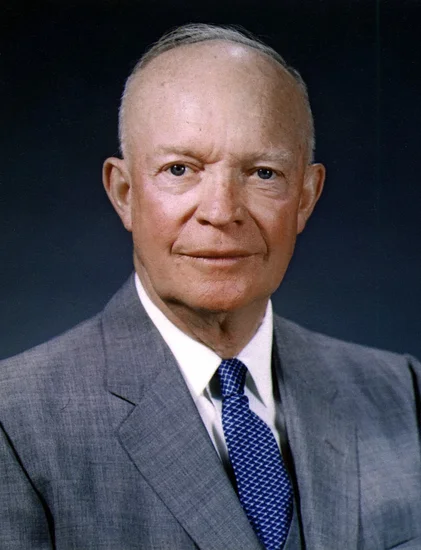
President Dwight D. Eisenhower addressed the United Nations General Assembly with his groundbreaking “Atoms for Peace” proposal. The speech outlined America’s commitment to sharing peaceful nuclear technology with nations worldwide for medical, agricultural, and energy purposes.
The initiative led to the creation of the International Atomic Energy Agency and revolutionized global nuclear cooperation. Eisenhower’s vision transformed nuclear technology from purely military applications into tools for human advancement and scientific progress.
1990 – Galileo Spacecraft’s First Earth Flyby

NASA’s Galileo spacecraft successfully completed its first gravity-assist maneuver around Earth, gaining velocity for its journey to Jupiter. The flyby demonstrated innovative orbital mechanics techniques that would become standard for deep space missions.
The mission tested crucial instruments and systems while capturing unique images of Earth and the Moon. Galileo’s successful Earth flyby marked a critical milestone in humanity’s quest to explore the outer solar system.
2010 – SpaceX Achieves Historic Spacecraft Recovery
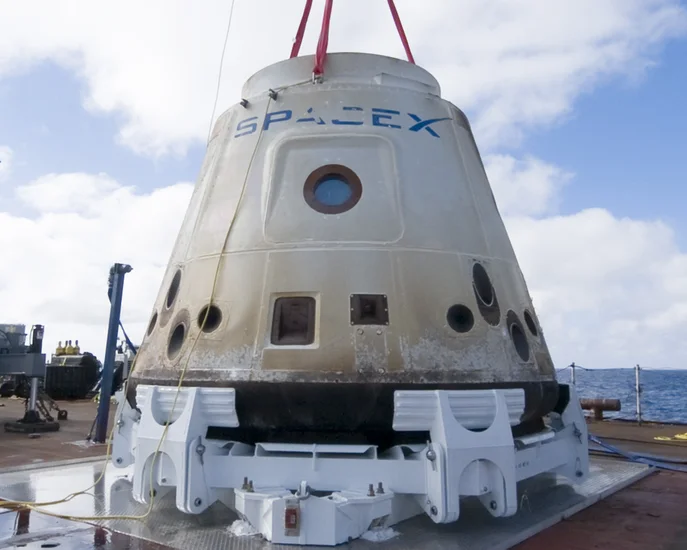
SpaceX became the first private company to successfully launch, orbit, and recover a spacecraft with the Dragon capsule’s maiden flight. The achievement marked a revolutionary moment in commercial space exploration and cargo delivery capabilities.
The successful mission demonstrated that private companies could match government space agencies’ capabilities at reduced costs. SpaceX’s breakthrough paved the way for the commercial space industry and future crewed missions to the International Space Station.
Cultural and Arts Events on December 8
1980 – John Lennon Murdered in New York City

Former Beatles member John Lennon was shot and killed by Mark David Chapman outside The Dakota apartment building in Manhattan. The shocking assassination of the beloved musician and peace activist sent shockwaves through the global music community.
Lennon’s death marked the end of any possibility of a Beatles reunion and silenced one of popular music’s most influential voices. Thousands of fans gathered in Central Park’s Strawberry Fields to mourn the loss of the legendary singer-songwriter.
2013 – Metallica Performs First Concert in Antarctica

The heavy metal band Metallica made history by performing a concert in Antarctica, becoming the first musical act to perform on all seven continents. The unique show was played in a transparent dome for a small audience of contest winners and researchers.
The ambitious concert required extensive logistical planning and environmental considerations to protect the pristine Antarctic ecosystem. Metallica’s achievement demonstrated the global reach of popular music and the band’s commitment to their worldwide fanbase.
2004 – Columbus Nightclub Shooting Tragedy

A gunman opened fire at the Alrosa Villa nightclub in Columbus, Ohio, killing former Pantera guitarist “Dimebag” Darrell Abbott and three others during a performance. The shocking attack devastated the heavy metal community and raised serious questions about concert security.
The tragedy occurred during a performance by Damageplan, Abbott’s band formed after Pantera’s dissolution. The incident led to increased security measures at music venues nationwide and highlighted the vulnerability of performers and audiences.
Religious and Social Events on December 8
1922 – Irish Free State Executes IRA Leaders
The newly formed Irish Free State government executed four prominent Irish Republican Army leaders including Liam Mellows and Rory O’Connor. The executions occurred just two days after the Free State’s official establishment and marked a tragic escalation in the Irish Civil War.
The harsh action demonstrated the Free State’s determination to establish authority over republican opposition forces. These executions deepened the bitter divisions within Irish society and intensified the ongoing civil conflict between former allies.
1933 – Anarchist Insurrection Erupts in Zaragoza
Spanish anarchists launched an armed uprising in Zaragoza as part of broader revolutionary activities across Spain. The insurrection reflected growing social tensions and political polarization that would eventually lead to the Spanish Civil War.
The failed uprising resulted in numerous arrests and casualties while demonstrating the deep ideological divisions within Spanish society. These events foreshadowed the violent conflicts that would engulf Spain throughout the 1930s.
1987 – First Intifada Sparked by Traffic Incident
An Israeli military tank transporter killed four Palestinian refugees at the Erez Crossing, triggering widespread protests that evolved into the First Intifada. The traffic accident became a catalyst for years of Palestinian uprising against Israeli occupation.
The incident transformed simmering tensions into active resistance, fundamentally altering the Israeli-Palestinian conflict dynamics. The First Intifada brought international attention to Palestinian grievances and changed the nature of the Middle East peace process.
Business and Economic Events on December 8
1962 – New York Newspaper Strike Begins
Workers at four major New York City newspapers initiated a strike that would eventually spread to nine publications and last 114 days. The labor dispute paralyzed the city’s print media industry and demonstrated the power of organized labor in the publishing sector.
The strike severely impacted New York’s information flow and advertising revenue during a crucial period. The prolonged work stoppage forced many readers to seek alternative news sources and accelerated changes in the city’s media landscape.
1985 – South Asian Association for Regional Cooperation Established
Eight South Asian nations formally established SAARC to promote regional economic cooperation and development. The organization aimed to enhance trade, cultural exchange, and political dialogue among South Asian countries.
The association represented a significant step toward regional integration despite ongoing political tensions between member nations. SAARC’s creation reflected growing recognition of the benefits of economic cooperation in addressing shared challenges.
1998 – Armed Groups Kill 81 in Algeria
Violent attacks by armed groups resulted in 81 deaths across Algeria during the country’s brutal civil conflict. The massacres highlighted the ongoing security crisis and humanitarian catastrophe affecting Algerian society.
The violence demonstrated the devastating impact of Algeria’s internal conflict on civilian populations. These attacks were part of a broader pattern of violence that claimed hundreds of thousands of lives during the 1990s.
Transportation and Infrastructure on December 8
1963 – Pan Am Flight 214 Lightning Strike

Pan American World Airways Flight 214, a Boeing 707, was struck by lightning and crashed near Elkton, Maryland, killing all 81 people aboard. The tragedy highlighted the dangers of severe weather conditions for commercial aviation.
The crash led to significant improvements in aircraft lightning protection systems and weather detection technology. The investigation revealed important lessons about fuel tank safety and electrical systems that enhanced aviation safety standards.
1971 – United Airlines Flight 553 Crashes in Chicago
United Airlines Flight 553, a Boeing 737, crashed while attempting to land at Chicago Midway International Airport, killing 45 people. This accident marked the first fatal crash of a Boeing 737 aircraft in commercial service.
The crash investigation revealed critical issues with approach procedures and crew coordination during emergency situations. The tragedy led to improved training protocols and safety procedures that enhanced airline safety standards.
1972 – Greek Ferry Disaster in Aegean Sea
The Greek passenger ship SS Heraklion sank during a severe storm in the Aegean Sea, resulting in over 200 deaths. The maritime disaster highlighted the dangers of ferry travel in rough weather conditions.
The tragedy led to improved safety regulations for passenger ferries and better weather monitoring systems. The incident demonstrated the need for enhanced emergency procedures and life-saving equipment on passenger vessels.
Sports and Recreation on December 8
2009 – Metallica’s Antarctic Performance

Metallica performed a groundbreaking concert in Antarctica, making them the first band to perform on all seven continents. The unique show took place in a specially constructed dome to protect the Antarctic environment.
The concert was attended by a small group of contest winners and research station personnel. The performance demonstrated the global reach of popular music and the band’s commitment to achieving unprecedented milestones.
2013 – Singapore Little India Riots
Riots erupted in Singapore’s Little India district following a fatal traffic accident involving a foreign worker. The disturbances marked Singapore’s first major civil unrest in decades and prompted significant policy reviews.
The incident highlighted underlying social tensions related to foreign worker conditions and community relations. The government’s response included enhanced crowd control measures and improved worker welfare programs.
2010 – IKAROS Spacecraft Venus Flyby
Japan’s IKAROS solar-sail spacecraft successfully passed Venus at a distance of approximately 80,800 kilometers during its groundbreaking mission. The flyby demonstrated the viability of solar sail technology for deep space exploration.
The mission proved that spacecraft could be propelled by solar radiation pressure alone, opening new possibilities for interplanetary travel. IKAROS’s success paved the way for future solar sail missions and innovative propulsion technologies.
Notable Births on December 8
1943 – Jim Morrison, Doors Frontman

American singer-songwriter and poet Jim Morrison was born in Melbourne, Florida, destined to become one of rock music’s most iconic and controversial figures. His charismatic stage presence and poetic lyrics would define The Doors’ revolutionary sound.
Morrison’s complex personality and philosophical approach to music challenged conventional rock boundaries. His brief but influential career left an indelible mark on popular culture before his death at age 27.
1936 – David Carradine, Versatile Actor
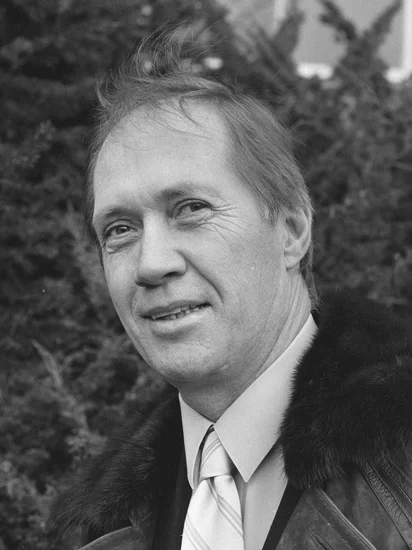
American actor David Carradine entered the world in Hollywood, California, beginning a career that would span television, film, and martial arts. His most famous role as Kwai Chang Caine in “Kung Fu” made him a household name.
Carradine’s distinctive voice and physical presence made him a sought-after character actor across multiple decades. His later career resurgence in Quentin Tarantino’s “Kill Bill” films introduced him to new generations of fans.
1925 – Sammy Davis Jr., Entertainment Legend

American entertainer Sammy Davis Jr. was born in Harlem, New York, beginning a remarkable career that would make him one of the most versatile performers of the 20th century. His talents encompassed singing, dancing, acting, and comedy.
Davis broke racial barriers in entertainment while becoming a key member of the famous “Rat Pack” alongside Frank Sinatra. His dynamic performances and charismatic personality made him a beloved figure in American popular culture.
1953 – Kim Basinger, Academy Award Winner

American actress Kim Basinger was born in Athens, Georgia, eventually becoming one of Hollywood’s most recognizable leading ladies. Her breakthrough role in “9½ Weeks” established her as a major film star.
Basinger’s career peaked with her Academy Award-winning performance in “L.A. Confidential,” demonstrating her dramatic range. Her blonde beauty and acting talent made her one of the most sought-after actresses of the 1980s and 1990s.
1981 – Nicki Minaj, Rap Superstar

Trinidadian-American rapper Nicki Minaj was born in Saint James, Trinidad and Tobago, before moving to New York City where she developed her distinctive musical style. Her colorful persona and rapid-fire rap delivery revolutionized female hip-hop.
Minaj’s success broke numerous barriers for women in rap music while establishing her as a global pop culture icon. Her influence extended beyond music into fashion, beauty, and social media, inspiring countless artists.
1985 – Dwight Howard, NBA Champion

American basketball player Dwight Howard was born in Atlanta, Georgia, developing into one of the NBA’s most dominant centers. His exceptional athleticism and shot-blocking ability made him a perennial All-Star and defensive force.
Howard’s career included multiple Defensive Player of the Year awards and an NBA championship with the Los Angeles Lakers. His powerful dunks and charismatic personality made him one of basketball’s most recognizable figures.
Notable Deaths on December 8
1980 – John Lennon, Beatles Legend

English singer-songwriter John Lennon was tragically murdered outside his New York City apartment building at age 40. The former Beatles member had been working on his comeback album “Double Fantasy” after a five-year hiatus from music.
Lennon’s death shocked the world and marked the end of any possibility of a Beatles reunion. His legacy as a peace activist and musical innovator continues to influence artists and social movements worldwide.
1978 – Golda Meir, Israeli Prime Minister

Former Israeli Prime Minister Golda Meir died in Jerusalem at age 80, concluding a remarkable political career that spanned Israel’s founding years. Known as the “Iron Lady of Israeli politics,” she led the nation through the challenging period of the Yom Kippur War.
Meir’s leadership during crisis situations and her pioneering role as one of the world’s few female heads of government earned international respect. Her dedication to Israeli security and social democracy shaped the young nation’s early development.
2004 – Dimebag Darrell, Guitar Virtuoso

American guitarist Dimebag Darrell Abbott was shot and killed during a performance in Columbus, Ohio, at age 38. The former Pantera member had been performing with his new band Damageplan when a gunman opened fire.
Darrell’s innovative guitar techniques and heavy metal compositions influenced countless musicians and helped define the groove metal genre. His tragic death shocked the music world and highlighted the vulnerability of performing artists.
2016 – John Glenn, Space Pioneer

American astronaut and senator John Glenn died in Columbus, Ohio, at age 95, after a legendary career in both space exploration and public service. He became the first American to orbit Earth in 1962 aboard Friendship 7.
Glenn’s courage and skill as a test pilot and astronaut made him a national hero during the Space Race. His later return to space at age 77 aboard the Space Shuttle Discovery demonstrated his enduring commitment to exploration.
2019 – Juice WRLD, Hip-Hop Star

American rapper Juice WRLD died suddenly at Chicago’s Midway Airport at age 21, shocking the hip-hop community and his millions of fans. His melodic rap style and emotional vulnerability resonated with young audiences worldwide.
Juice WRLD’s brief but impactful career included multiple platinum albums and hit singles that addressed themes of mental health and relationships. His death highlighted the ongoing struggles with substance abuse in the music industry.
Holidays and Observances on December 8
Battle Day (Falkland Islands)
The Falkland Islands commemorate the 1914 Battle of the Falkland Islands, where the Royal Navy achieved a decisive victory over German forces. This observance honors the naval personnel who fought in the South Atlantic during World War I.
Feast of the Immaculate Conception
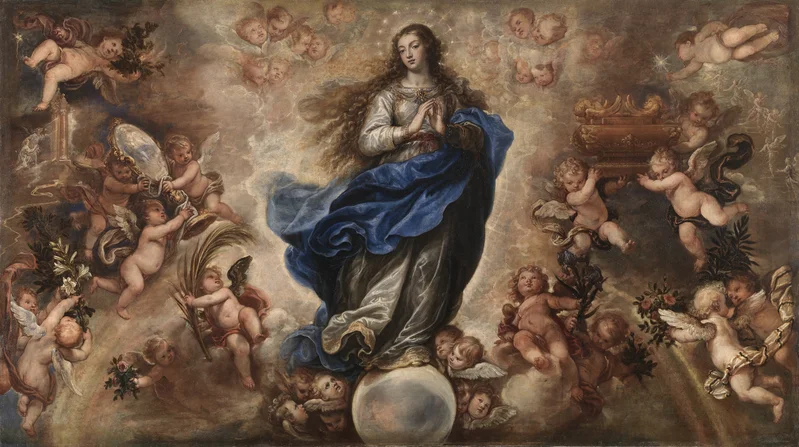
Catholics worldwide observe the Feast of the Immaculate Conception, celebrating the belief that Mary was conceived without original sin. This holy day of obligation holds special significance in many Catholic countries and communities.
Constitution Day (Romania)
Romania celebrates the adoption of its post-communist constitution, marking the country’s transition to democracy. This national holiday commemorates the fundamental law that established Romania’s modern democratic institutions and civil rights protections.
Day of Finnish Music (Finland)
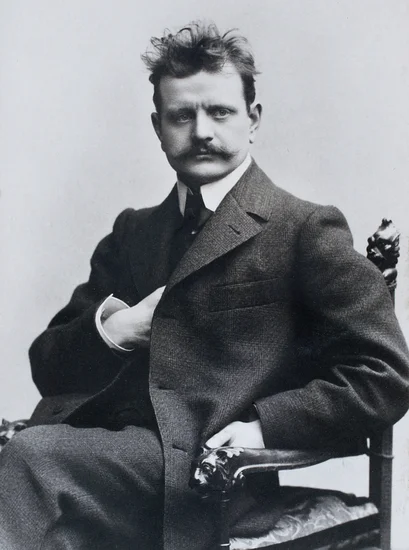
Finland celebrates its rich musical heritage and the contributions of Finnish composers to world culture. The observance honors Jean Sibelius and other notable Finnish musicians who have enriched the global musical landscape.
Student’s Day (Bulgaria)
Bulgarian students and educators celebrate Student’s Day in honor of Saint Clement of Ohrid, patron saint of students and education. The day recognizes the importance of learning and academic achievement in Bulgarian society.
